Have you heard that saying about the smells of a wet dog? It might seem unbelievable, but most dogs tend to smell terrible from time to time. It’s pretty standard. While it might not appear a big issue to you, wait till your guests start speaking the truth. Most of the time, an excellent soapy bath can solve the problem. But, sometimes, an acrid smell emanating from your dog can indicate some serious health issues.
Dogs can smell due to skin problems, dental issues and infections. These are the common conditions that might make your dog smell bad. If you can’t get rid of a foul smell after bathing your dog, you may need to contact a veterinarian for a health check.
Let’s explore each possibility and see if your dog could be smelling because of one.
Normal Dog Smell
Most dog owners never notice it, but any visitor can take a whiff of your home and tell you that they can smell the dog. The typical smell of the dogs is not bad. Most dog lovers feel comfortable around the scent and often find it homely. But it is undeniable that dogs have a distinct smell.
The reason is that, unlike humans, dogs and other canines do not sweat through their skin pores. Instead, they sweat from the hair follicles and paws. The dogs also produce an essential oil that keeps their hair and skin healthy.
Along with that, the glands in their ears produce a subtle yeast-like smell. The anal sac and glands of the dogs also release a musty scent. This scent attracts the attention of other dogs. That’s why when two dogs greet each other; they often smell the hindquarters of each other.
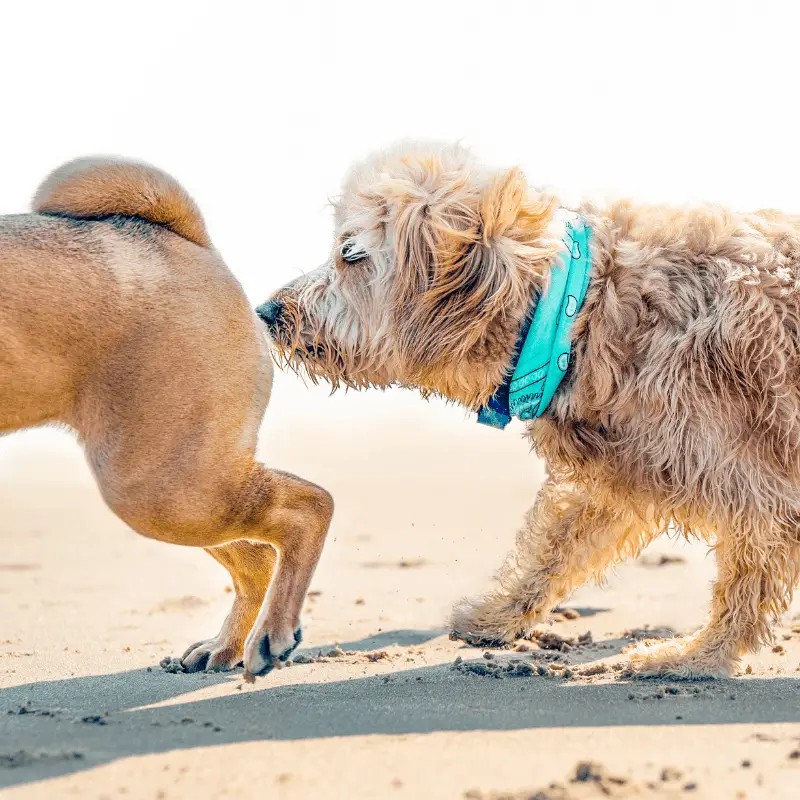
All these scents and oils create a different bouquet for each animal. It is this scent that helps the dogs identify each other. Your dog also leaves its odour on your furniture, carpet and clothes, which you should accept before opening your door to a dog.
So, if you are mulling about why your dog smells, you probably should wash your dog along with the carpet and clothes first. Washing and cleaning will prevent the buildup of aromas and keep your dog from smelling bad.
Dental Issues
Do you know that most pets suffer from some of the other types of dental issues until they become three years old? You would develop this problem too if you did not brush your teeth for three long years.
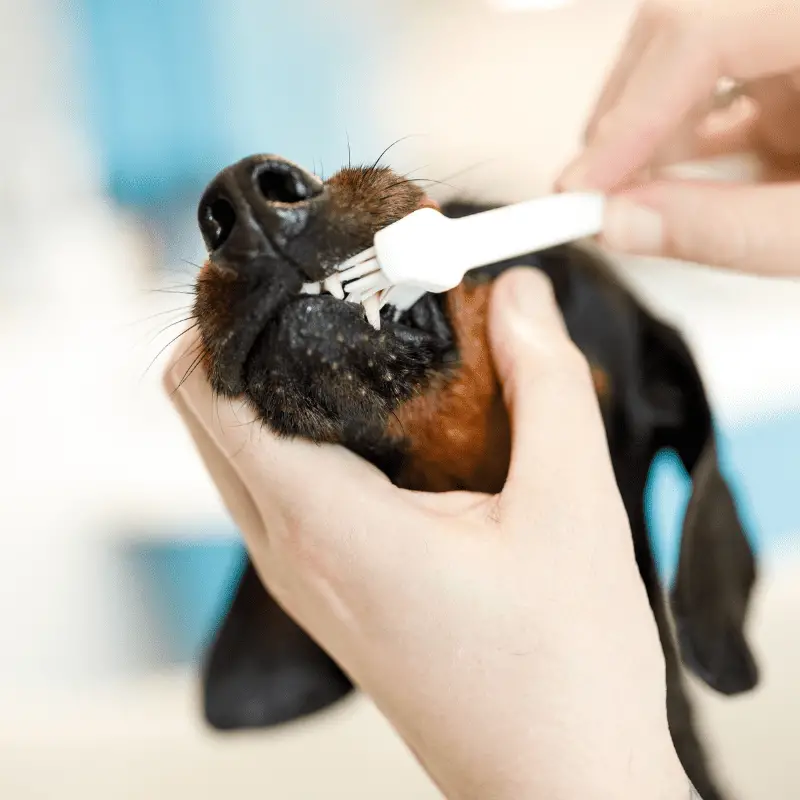
Like their human companions, the buildup of tartar and plaque on the teeth is also the primary cause of bad breath in dogs. So within hours of having a meal, the plaque starts forming in your pet’s teeth. Over time, it slowly hardens into cement-like tartar. These tartars and plaques are loaded with viruses and bacteria that create different dental issues in dogs. Some smaller dog breeds are especially prone to problems like gum troubles.
Gingival Hyperplasia is another dental problem of some specific dog breeds. It is a problem associated with the overgrowth of gums, which harbours bits of food, generating an acrid smell.
Cleaning your dog’s teeth is the first step to getting rid of this problem. While you can try to clean your dog’s teeth at home, your pet might need cleaning from veterinary professionals once in a while.
Kidney Disease
Dogs suffering from kidney troubles cannot eliminate the waste products from their bloodstream. Over time, the waste products build up in their bloodstream and give an ammonia-like stench to your dog’s breath.
Some people also notice a metallic smell in the dogs’ breath suffering from kidney failure. If your dog’s kidney function is impaired somehow, you will see a significant increase in water intake and urination. If you do not take your dog at the right time to the vet, the toxic buildup will progress rapidly. When your pet cannot take enough water to flush out the buildup of toxins in its body, it might start vomiting or become nauseous. Your dog may also stop eating altogether.
Diabetes
Diabetes can also give an odour to the breath of your dog. In this case, your pet’s body could not produce enough insulin or could not correctly use the produced insulin. As a result, your pet would not process the food and absorb the nutrients.
In this scenario, the dog’s body will break down to keep the flow of nutrients intact. Once this process starts, the dog starts producing ketones. It is the ketones that give a distinct smell to the breath of your dog. While some people say it smells like nail polish, others find it a sweet smell.
Skin Issues
Skin infection is one of the most common problems of dogs of every breed. Like English Bulldog, Pug, or Shar-Pei, the breeds are vulnerable to a skin disease known as skin fold dermatitis. However, dogs with wrinkly skin suffer from this problem the most.
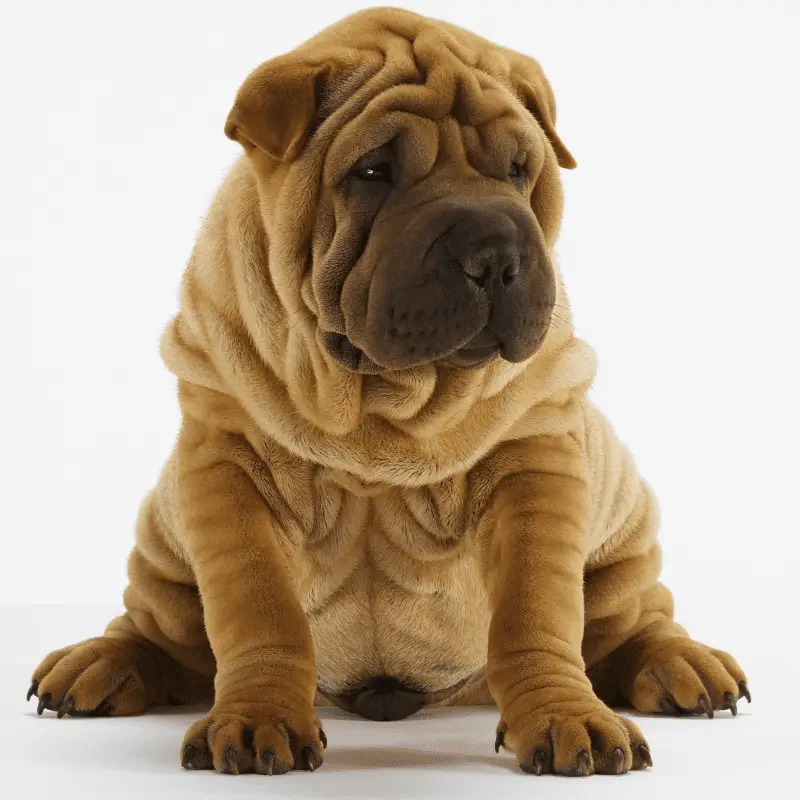


The stinky disorder occurs because the skin’s folds create a moist environment that is the perfect breeding ground for microbes, like yeast and bacteria. The toxins these organisms produce to break down the skin barrier, causing inflammation, irritation and infection. You will need to clean the skin to avoid these issues frequently.
Another common skin issue is Canine seborrhea. It is a condition that, if left untreated, can generate a musty smell. While there is no cure for this skin disease, Canine seborrhea can easily be managed by dog owners.
Allergies can also cause severe skin issues in your pet. Just like humans, allergies can cause skin rashes in dogs as well. The dog traumatises the affected area enough to break the skin barrier by scratching and biting the rashes.
Hormonal imbalances, parasites and fungus. Once that’s done, it’s pretty easy for the bacteria and other microbes to slip through the skin’s breaks and cause stinky infection. It can boost the yeast’s localised growth, which can make your dog smell bad. The more your dog scratches the area to eliminate the discomfort, the higher the chances of a secondary bacterial infection. If that happens, then your dog will smell much worse.
So, if you are wondering why my dog smells, look at your dog’s skin condition. You can also take your dog to the vet if you can’t find the root cause of the smell with a naked eye inspection. You can also help with skin problems by giving your regular dog baths, keeping him clean, and using a small amount of Sudocrem on the problem area with help.
Please be aware that over-bathing your dog will strip its skin of the essential oil that keeps the fur and skin healthy. It will help you keep your pet healthy and avoid bad smells. So, it would be best to talk to your vet about suitable care methods for your dog.
Recommended reading:
- Can my dog drink rainwater from a puddle?
- Should I get fake grass for my dog?
- Why does my dog’s bed get wet underneath?
Ear Infection
Allergies are one of the most typical causes of ear infections among pets. Because of their unique anatomy, some dog breeds, like hounds, are more prone to ear infections than others. These dog breeds’ floppy ears trap the moisture inside their ear, creating a perfect environment for bacterial growth. If your dog frequently swims without a proper ear drying session, the chances of developing an ear infection can increase.
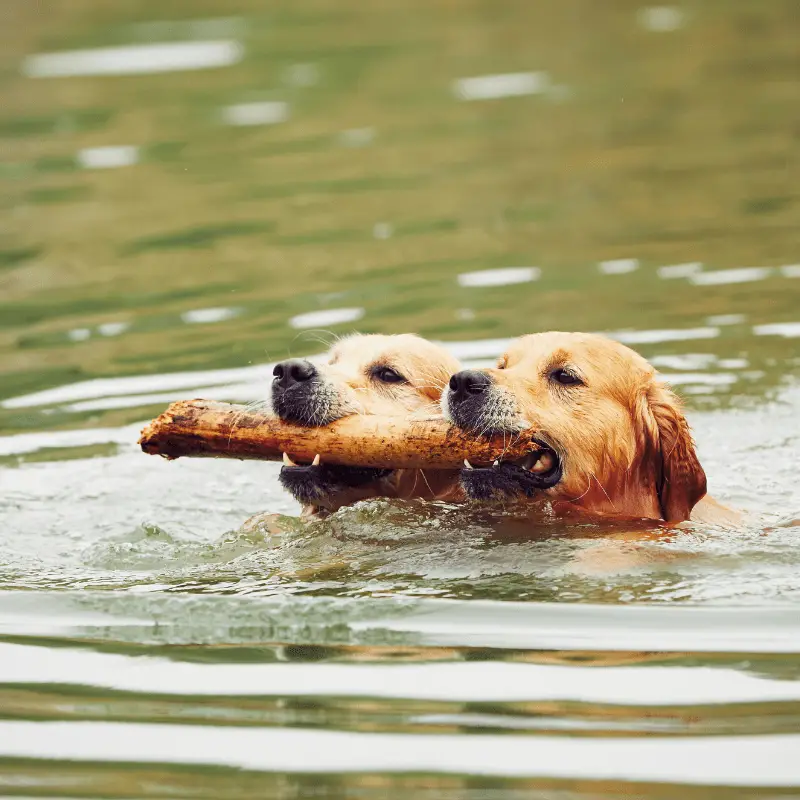
Like the folded skin, the dog’s ear is the perfect place for the microbes to settle and multiply like yeast and bacteria. The usual debris accumulates in your dog’s ear does not have any foul smell.
Take your dog for a routine check-up to the vet immediately. However, if you notice an acrid stench coming from your pet’s ears, you should immediately take your dog to the vet. Also, if your dog scratches her head or shakes it excessively, it might indicate an ear infection.
Anal Sac Issues
It is the most common reason for foul odours in dogs. Your canine companion has two tiny sacs on either side of the rectum. When the dog defecates, these glands create a thin foul-smelling fluid.
While these sacs are essential to the dogs’ anatomy, many suffer from anal sac issues. Typically, a healthy anal sac should not smell. However, if your pet suffers from an anal sac infection of impactions, you will smell a strong fishy stench.
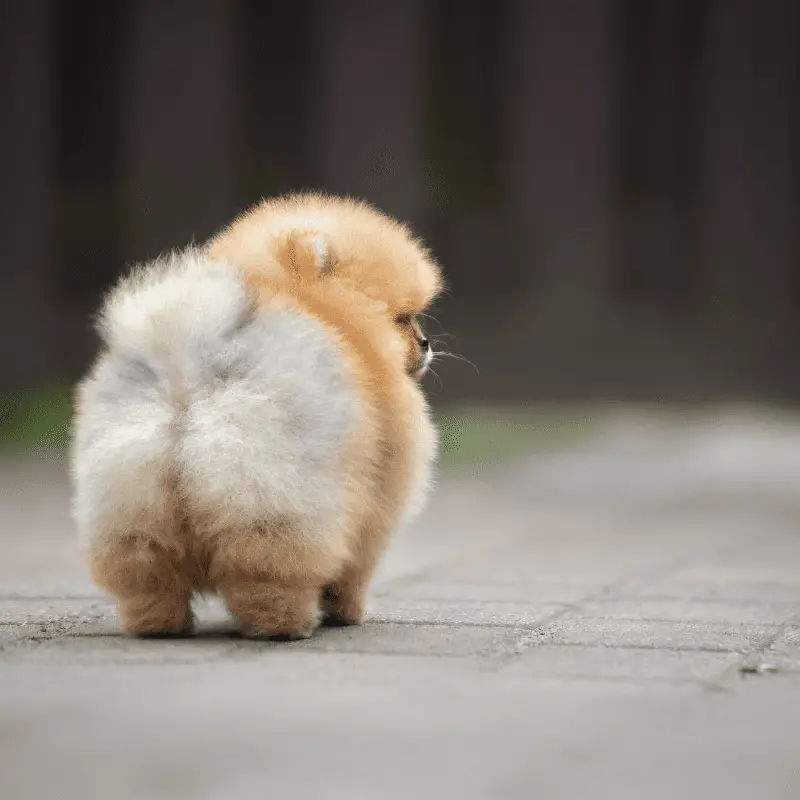
In the earlier phase of the infection, the dogs excessively lick their hindquarters or try to scoot along the floor to put some pressure on the liquid-filled anal sac. If your canine companions conduct any such behaviour, you should schedule a visit to the vet for a manual check-up. If left untreated, the anal sac can rupture and take a form of an abscess. It can make your dog smell even worse than before.
Flatulence
If you talk to a room full of people about their dogs, you will hear some stories about their dog’s gas. While occasional flatulence, gurgling and burping are normal, excessive gas can indicate health issues. A putrid, foul smell of the gas is not typical either.
There are potentially further issues if your dog has enough gas to clear a room. Most of the time, such smelly flatulence is accompanied by diarrhoea and vomiting. If your dog has suffered from a gas problem for weeks, you should visit the vet for a check-up. Sometimes, you can overcome the problem by changing your pet’s diet.

Some dog breeds, like boxers, pugs, and bulldogs, suffer more from gas issues due to their anatomy. The squished-up nose of these breeds makes them inhale more air while eating, which leaves them with too much air in their digestive system. If you have one of these breeds, you can solve this issue by raising their feeding bowl; or probiotics. No matter what you do, always consult with your vet beforehand.
Prevention
There are a couple of things that you can do to prevent problems. Starting with dental hygiene from the early days is one of the first steps you should take.
It means you should plan for annual dental cleanings, brush the teeth of your canine buddy at home and regularly offer them chews to keep the dental buildup away. Clean the folds of the skin and ear of your pet regularly and keep them dry. After every swimming session, clean your dog’s ear and dry it.

Always stay strict about the diet of your dog. If you find that the diet answers your question, then change it immediately. There are many healthy brands of dog food on today’s market. However, consult with a vet before bringing drastic changes to your dog’s diet. Even if your dog does not go for a swim, you should periodically clean its ears. Also, make sure to bathe your dog regularly.
All in all, if you follow the cleaning routine suggested by your veterinarian, then your dog should not smell bad. However, if the stench persists, you should visit the veterinarian immediately. If you cannot find any visible cause for the stink, consult your vet immediately to determine any underlying health issues. To stay on top of things, become a great dog parent, shower your canine companion with much love, and keep sniffing.
